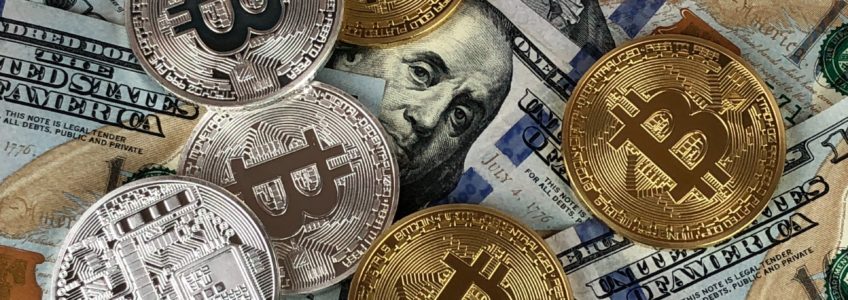From commodity money to the birth of fiat currency and the now worldwide popular cryptocurrency Bitcoin, money, as we know, is not done evolving or surprising us. But are these changes beneficial or disrupting something that already works? We’ll find out.
Origins of trade
Trade originated in prehistoric times. Prehistoric people bartered goods and services from each other when modern money was never even thought of.
Peter Watson dates the history of long-distance commerce from circa 150,000 years ago.
Trade is believed to have taken place throughout much of recorded human history, but not as we know it today. Commodity money, which are objects with a fundamental value like rare seashells, whale’s teeth, and cattle, was the only the way people traded for many years. And we can imagine that it was an easy way as a cow has probably the same value in England as it has in any other country, unlike today’s currencies.
As the system of commodity money evolved in many instances it then became representative money. This first stage of currency metals was used to represent stored value by the Romans.
In the 16th century, Holland was the centre of free trade, imposing no exchange controls, and advocating the free movement of goods. Visionary? You tell me!
The Great Depression was a major economic collapse that ran from 1929 to the late 1930s. There was a great setback in trade and other economic indicators during this period.
The lack of free trade was considered by many as a principal cause of the depression causing stagnation and inflation. Only during World War II, the recession ended in the United States. Also, during the war, in 1944, 44 countries signed the Bretton Woods Agreement, intended to prevent national trade barriers, to avoid depressions. At that time, governments were moving slowly towards borderless trade, which will later on, be enabled by a certain blockchain technology…
Today, trade is merely a subset within a complex system of companies which try to maximize their profits by offering products and services to the market (which consists both of individuals and other companies) at the lowest production cost.
A system of international trade has helped to develop the world economy in combination with bilateral or multilateral agreements, to lower tariffs or to achieve free trade, has sometimes harmed third-world markets for local products.
Cryptocurrency, the Trade 2.0?
The evolution of trade has brought some amazing innovations and eased global commerce, but also left behind developing and unbanked countries, until… 2008, the invention of Bitcoin and its innovative manner of using blockchain technology to enable peer to peer transactions.
What does that exactly mean for developing countries?
It means the world!
They can now transact globally whenever they want, however they want, setting up their own prices, cutting off the middlemen, all of this just by using a mobile phone.
No need for a computer; no need for a bank; no need for an intermediary; instant, borderless transactions. How wonderful?
Cryptocurrencies and blockchain technology have already started revolutionising the way people transact and have opened many doors to third-world markets.
Nowadays, businesses can already buy and sell online (B2B & B2C), using cryptocurrencies on marketplaces like ModulTrade, Forra, and Shopify.
Have a look at this map to find out what shops accept cryptocurrencies around the world!
MarketOrders, disrupting the outdated processes of the gold & diamond industry
At MarketOrders, we understand that cryptocurrencies put the power right back in the hands of small and developing businesses, which is why we’ve decided to use blockchain technology within our platform.
Our marketplace enables small retailers to get the products they need faster, cheaper, directly from international manufacturers. By cutting off the middlemen, both parties, retailers and manufacturers, win, by selling and buying at the right price.
Our CEO Ram says, ‘Our retail customers and suppliers face unnecessary delays in receiving their products as the supply chain is held up with complicated paperwork and international payments taking weeks to settle. We intend to use the power of blockchain to digitise the documentation to process the products and get them shipped faster internationally while allowing our customers to use the MarketOrders native token as a way to settle payments in a matter of minutes rather than days or weeks.’
And that’s not all; blockchain technology brings transparency to an outdated supply chain system and ensure the provenance of the products and their legitimacy.
The future is now, and we’re seizing it.
Learn more about MarketOrders here.
Sources:

